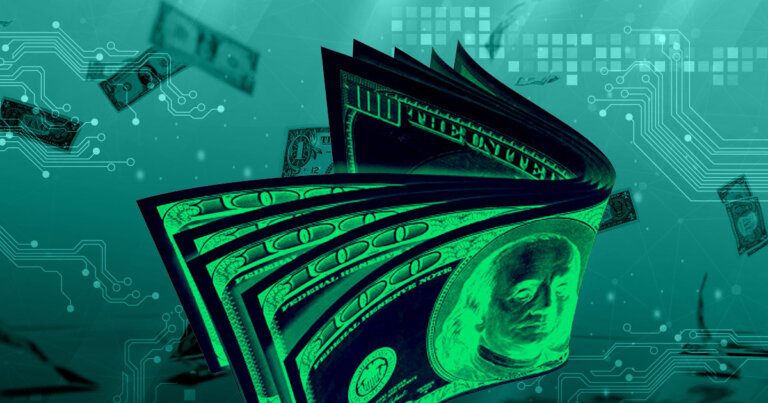 Florida bans ‘centralized digital dollar’ under state law
Florida bans ‘centralized digital dollar’ under state law Florida bans ‘centralized digital dollar’ under state law
Ron DeSantis said that CBDCs would allow the government to do a lot of things that would not be "conducive to freedom."

Cover art/illustration via CryptoSlate. Image includes combined content which may include AI-generated content.
Florida Governor Ron DeSantis signed a bill that ban any potential iteration of a “centralized digital dollar” in the state.
DeSantis announced the signing during a press conference in Fort Myers on May 12 from a podium that read:
“Big Brother’s Digital Dollar”
‘CBDCs are wrong’
The governor said during the conference that recent years have shown that governments are overly eager to impose restrictions on citizens using the tools at their disposal and this toolset will eventually include a central bank digital currency (CBDC).
He added that the Biden administration’s move to study CBDCs is a sign that the government intends to implement it in the near future. However, this would allow the government to do a lot of things that would not be “conducive to freedom.”
DeSantis said:
“Anyone with their eyes open could see the dangers that this type of arrangement would mean for Americans who want to excercize their financial independence and want to conduct their business without the government knowing their every transaction in real time.”
The Governor added that CBDC are “fundamentally antithetical” to a free society as they shift the power from consumers to a centralized authority.
He further states that it is unlikely that Congress would ever approve a CBDC and if it does then the protections in the bill will serve as an “important bulwark” against the federal government’s “illegitimate use of power.”
Senate Bill 7054
Sentae Bill 7054 was introduced at the end of March and has quickly secured various House approvals since then. It will officially become law once its signed into the registrar.
The bill defines central bank digital currency (CBDC) as any digital currency, digital medium of exchange, or a digital monetary unit of account” that is “issued and validated” by the Federal Reserve or any foreign central bank or financial regulator.
It also revises the definition of Money to specifically exclude CBDCs.





































































































